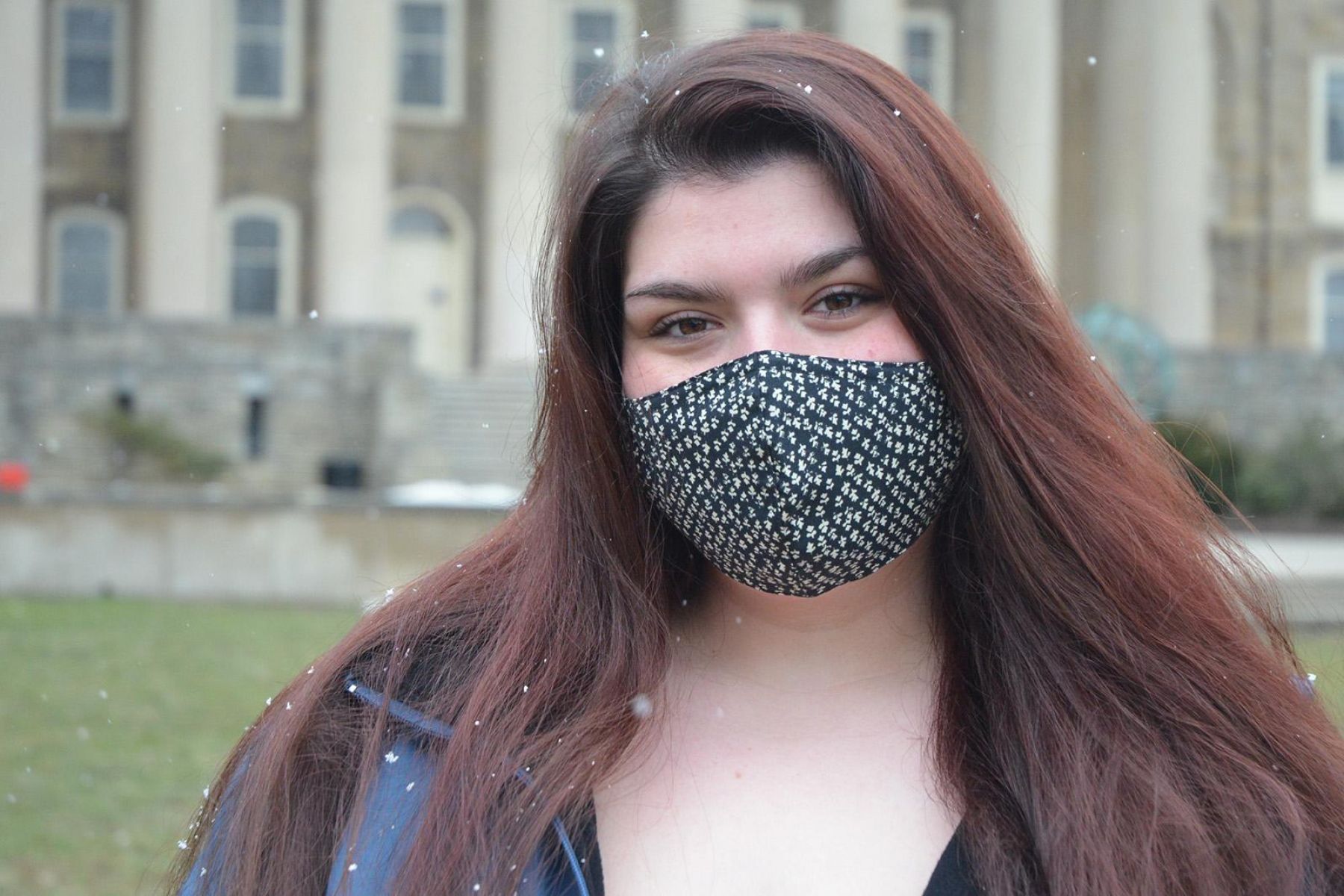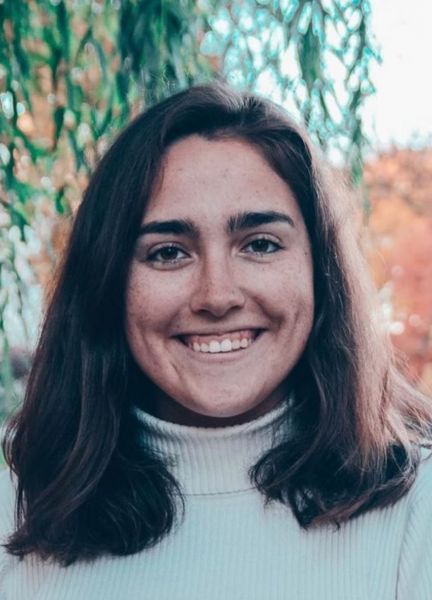‘For a lot of people, [State College] is home’
Virus-related challenges especially important for local student

Over the past 11 months, millions of college students across the country have navigated completing their degrees during the COVID-19 pandemic.
The circumstances have proven no different for Penn State students, who have been asked to “Mask Up or Pack Up” since last fall. And, with many students back in State College from their hometowns for the spring semester, they are faced with a common challenge: keeping themselves and their peers safe and healthy while completing their studies and conducting their social lives.
Some students, though — particularly those who commute to campus or who grew up and live in the area — are not only preoccupied with their own safety but the safety of their nearby family as well.
With her parents, brother and uncle living in State College, Abby English (sophomore-advertising/public relations) relates to that concern.
“[Many] students… come and go back to their hometowns where they can see their families. But they forget that for a lot of people, this is home,” English said. “The State College community never leaves. They’re the part that’s always here.”
This academic year, English has spent most of her time living in an off-campus apartment, as opposed to with her family. But, while she and many students have embraced the University’s #MaskUpOrPackUp campaign, she knows some students disregard CDC- and University-recommended COVID-19 guidelines. As a result, she worries her peers may be putting people like her family at a higher risk for contracting the virus.
She’s particularly unsettled knowing her family has to share the same essential public spaces as upward of 40,000 students through the pandemic.
“I don’t even have to leave my apartment to hear music blasting and see students roaming the streets, looking for a party, and even just walking downtown without masks,” English said. “How many [students] are asymptomatic carriers … going to the store, going wherever and spreading it?”
Based on 46,225 COVID tests administered on-campus since Dec. 19, 2020, Penn State’s total positivity is currently registered at 2.5% — 2.4% student positivity, and 3.2% employee positivity — according to the university’s official COVID-19 Dashboard, as of March 5.
The total positivity rate from the most-recently published seven days of testing, stopping at March 4, was 1.1%, with a 1.2% student positivity rate and 0.8% employee positivity rate out of 5,093 total tests.
As Penn State prepared to return this spring, the University requested COVID tests from students “who traveled or remained in their campus communities” over winter break. Of those pre-semester tests, 2.1% were positive.
When it comes to taking the COVID-19 pandemic seriously, however, students like English are not alone.
This past fall, Arielle Holding (junior-public relations) spent the semester working with a multitude of students for Penn State’s recently developed Public Health Ambassador Program — an initiative in which trained student employees monitor high-traffic areas on campus, and provide reinforcement and education of university health and safety guidelines for their peers.
Holding said the work of a Public Health Ambassador was, in some senses, simple. It felt straightforward — remind students to wear their masks properly, reinforce spacing guidelines, provide students in need with materials and information to stay safe, and more.
Enforcing those rules, however, was often the challenging part.
“…[S]ometimes, you could be nervous to go up to a group of people,” Holding said. “Or you’re in this [mindset] that, ‘Anyone who sees me in this shirt dislikes me, or thinks that I’m doing such an annoying job.’”
Despite that, Holding said most students were “pretty willing to abide by the rules” when approached by a Public Health Ambassador — a trend she hopes students learn from and abide by when Ambassadors aren’t around, as well.
“I would definitely [like to see students be] more considerate of other people and the possible risk they pose when contracting COVID-19,” Holding said. “Even when someone isn’t watching you, it would be nice to be considerate of their other peers who go to this school.”
English expressed similar sentiments. Part of the existing concern she has for herself and nearby family members stems from her experience of losing a loved one at the hands of the pandemic.
In August, her 40-year-old cousin, Yolanda Coar, died of COVID-19 — an experience that has left English unwilling “to take chances” when it comes to the safety of her family in State College.
“My cousin… was perfectly healthy. She’d been a nurse for years and years, she had no underlying health problems,” English said. “She has [two young] sons … Her kids are going to grow up the rest of their lives without a mother, and [some people are] concerned about one year of not going out to party?”
Further, English said she is ready for her peers to “make a change in that mindset” to help protect the whole State College community.
“I would love to see ... maybe just a little more understanding of the collective responsibility we all have,” English said. “And even though we aren’t the people who are most [severely at risk] by this pandemic, we are very responsible for spreading it and we can be responsible for stopping it.”



 @eljoro123
@eljoro123